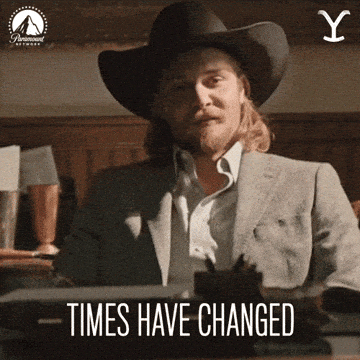- MindWatch
- Posts
- 2,000,000 Freed. 👏
2,000,000 Freed. 👏
No more checkbox shame!

For years, if you were a doctor, nurse, or pharmacist in the U.S. and needed mental health support, you had a choice.
Get help — or stay quiet and keep your license.

If you’re not a health professional, you may be asking why this matters to you.
Because all of us need to care how and when the stigma of mental health is crushed. If our physicians and helpers are getting the support they need by lessening stigma, they are able to provide us with better care and improve their own health outcomes. More about health outcomes and stigma in a future edition!
Many chose silence. Not because they didn’t need care. But because licensing boards and hospital systems asked intrusive, outdated, and often illegal questions about mental health history.
And it worked.
People didn’t speak up. They didn’t reach out. They carried the pressure (and the fear) alone.
But something just shifted.

Gif by YellowstoneTV on Giphy
According to the Dr. Lorna Breen Heroes’ Foundation, more than 2 million of the country’s 22 million health workers are now covered by updated, stigma-free policies — thanks to 40 medical licensing boards, dozens of pharmacy, nursing, and dental boards, and over 1,850 hospitals and care systems that have dropped these questions entirely. Wow!! 🎉💃🎈
You can read more about this news here.
This is what crushing stigma looks like.
Not with hashtags. Not with slogans. But with ink. Policy. Paperwork.
The stuff that decides whether someone gets to keep their job…or their sanity.
What It Means
- This is about access. Health workers can now seek therapy, medication, or support groups without risking their ability to work.
- This is about trust. A system that punishes vulnerability can’t preach wellness.
- This is about accountability. Licensing boards aren’t just gatekeepers. They’re culture-setters. They shape what gets said and what gets swallowed.
Why It Took So Long
Because stigma doesn’t just show up in attitudes. It shows up in forms. In checkboxes.
In hallway whispers: “Be careful what you disclose.”
For years, many boards asked questions that went beyond what’s legal — and deep into your personal health history.
“Some boards have historically asked about any history of diagnosis or treatment, rather than current impairment — a clear violation of federal disability law.” — Dr. Lorna Breen Heroes’ Foundation
On actual renewal forms, health workers were asked things like:
- Have you ever been diagnosed with a mental illness?
- Have you ever seen a therapist?
- Have you ever taken medication for anxiety or depression?
Even if it happened years ago. Even if it never once affected their work.
The message was clear: If you ask for help, you might lose your license. 😔
And that’s how stigma survives. Not always through cruelty. Sometimes through quiet compliance.
Until someone erases it.
What You Can Do
- If you work in health care: Check your state’s status at drlornabreen.org
- If you lead or license others: Audit your forms. Find the fear. Remove it.
- If you don’t work in health care: Ask where else this happens with teachers, pilots, cops, therapists, social workers.
- If you’ve stayed quiet out of fear: You’re not weak. You’re not wrong. It’s the overwhelming power of stigma. But the silence doesn’t have to continue.
Final Word
This isn’t a flashy story. It won’t trend on TikTok. But it’s exactly the kind of win that changes lives.
Because stigma doesn’t always scream. Sometimes it just sits quietly on a form. 📰
And sometimes, someone decides to cross it out.
I’ve been a professional counselor for over two decades, and stigma isn’t just a clinical or professional problem. Mental illness has shaped the lives of my family members & friends, my students, my colleagues, my supervisees, and countless clients I’ve sat with over the years.
Stigma doesn’t just show up in headlines or forms. It shows up in my office. At my dinner table over the years. In real people trying to cope.
Welcome to many of you who are new here! Thank you for joining this journey. You may be asking,
“What is MindWatch?”
MindWatch is a weekly newsletter I created to help crush the stigma of mental health by telling stories and reacting to news, culture, faith, and politics.
Until next week, come back…be here.
Keith
P.S. Next week I am sharing a very special guest and her story. I’ve waited a long time for this, and I cannot wait to share it with you!